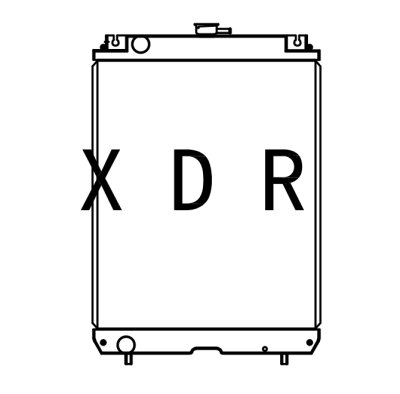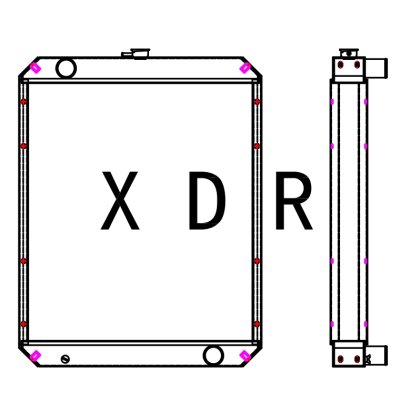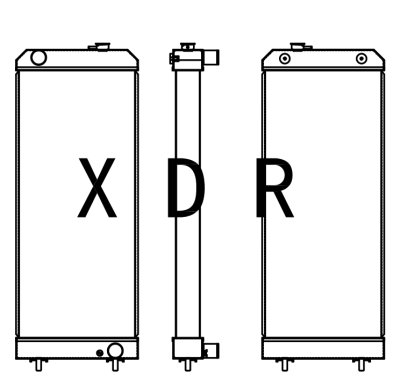Analysis of overheating in the hydraulic oil system of an excavator
Introduction: The hydraulic system is a critical component of an excavator, responsible for powering various functions such as boom, arm, and bucket movements. However, one common issue that can affect the performance and longevity of the hydraulic system is overheating. This document aims to provide a comprehensive analysis of the causes and solutions for overheating in the hydraulic oil system of an excavator.
Causes of Overheating:
Inadequate Cooling:
Cooler Efficiency: The hydraulic oil cooler may be clogged or damaged, reducing its ability to dissipate heat effectively.
Coolant Level and Quality: Insufficient coolant or degraded coolant can lead to poor cooling performance.
Fan and Airflow Issues: Malfunctioning fans or restricted airflow around the cooler can prevent proper heat dissipation.
Excessive Load:
Overloading the System: Operating the excavator beyond its rated capacity can generate excessive heat due to increased hydraulic fluid flow and pressure.
Leaking Valves and Cylinders: Internal leaks in valves and cylinders can cause the system to work harder, leading to increased heat generation.
Hydraulic Fluid Issues:
Contamination: Contaminants such as water, dirt, and metal particles can reduce the efficiency of the hydraulic fluid and increase internal friction, leading to overheating.
Incorrect Viscosity: Using hydraulic fluid with the wrong viscosity can increase internal friction and heat generation.
Degraded Fluid: Old or degraded hydraulic fluid can lose its lubricating properties, causing increased wear and heat.
Mechanical Failures:
Pump and Motor Issues: Worn or malfunctioning pumps and motors can generate excessive heat due to increased internal friction.
Bearing and Seal Failures: Damaged bearings and seals can lead to increased friction and heat generation.
Control System Malfunctions:
Sensor and Control Valve Issues: Faulty sensors and control valves can cause the system to operate inefficiently, leading to overheating.
Improper Settings: Incorrect settings on the control system can result in overworking the hydraulic components, generating excess heat.
Symptoms of Overheating:
High Oil Temperature: The temperature gauge indicates that the hydraulic oil temperature is consistently above the normal operating range.
Reduced Performance: The excavator may experience reduced power and slower response times.
Increased Noise and Vibration: Abnormal noise and vibration can indicate internal issues in the hydraulic system.
Leakage and Odor: Overheated hydraulic fluid can break down, leading to leakage and a burnt oil odor.
Solutions and Preventive Measures:
Regular Maintenance:
Inspect and Clean Coolers: Regularly inspect and clean the hydraulic oil cooler to ensure it is free from debris and functioning properly.
Check and Replace Filters: Regularly check and replace hydraulic filters to prevent contamination.
Monitor and Top Up Coolant: Ensure the coolant level is adequate and the coolant is in good condition.
Proper Operation:
Avoid Overloading: Operate the excavator within its rated capacity to prevent excessive heat generation.
Follow Manufacturer Guidelines: Adhere to the manufacturer's recommendations for hydraulic fluid type and viscosity.
System Checks:
Inspect for Leaks: Regularly inspect the hydraulic system for any signs of internal or external leaks.
Check Pumps and Motors: Regularly inspect and maintain pumps and motors to ensure they are in good working condition.
Verify Sensor and Control Valve Functionality: Ensure all sensors and control valves are functioning correctly and are set to the appropriate parameters.
Fluid Management:
Use High-Quality Hydraulic Fluid: Use high-quality hydraulic fluid that meets the manufacturer's specifications.
Change Fluid Regularly: Follow the recommended schedule for changing the hydraulic fluid to prevent degradation.
Conclusion: Overheating in the hydraulic oil system of an excavator can significantly impact its performance and lifespan. By understanding the causes and implementing regular maintenance and proper operation, operators can prevent and mitigate the effects of overheating, ensuring the excavator operates efficiently and reliably.
This expanded version provides a detailed analysis of the problem, including causes, symptoms, and solutions, which can help in diagnosing and addressing the issue of overheating in the hydraulic oil system of an excavator.




